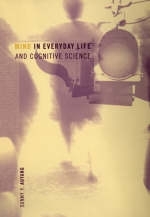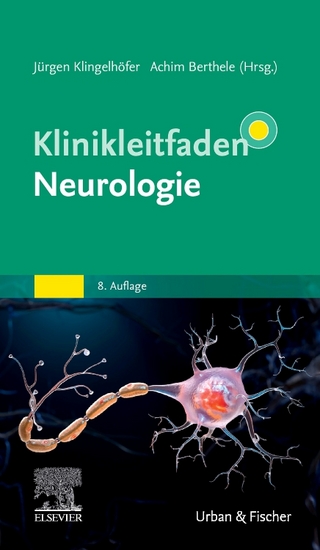
Mind in Everyday Life and Cognitive Science
Seiten
2001
Bradford Books (Verlag)
978-0-262-01181-5 (ISBN)
Bradford Books (Verlag)
978-0-262-01181-5 (ISBN)
- Titel ist leider vergriffen;
keine Neuauflage - Artikel merken
This work proposes a model of an "open mind emerging from the self-organization of infrastructures," which it opposes to prevalent models that treat mind as a disembodied brain or computer, subject to the control of external agents such as neuroscientists and programmers.
Sunny Auyang tackles what she calls "the large pictures of the human mind," exploring the relevance of cognitive science findings to everyday mental life. Auyang proposes a model of an "open mind emerging from the self-organization of infrastructures," which she opposes to prevalent models that treat mind as a disembodied brain or computer, subject to the control of external agents such as neuroscientists and programmers.
Although cognitive science has obtained abundant data on neural and computational processes, it barely explains such ordinary experiences as recognizing faces, feeling pain, or remembering the past. In this book Sunny Auyang tackles what she calls "the large pictures of the human mind," exploring the relevance of cognitive science findings to everyday mental life. Auyang proposes a model of an "open mind emerging from the self-organization of infrastructures," which she opposes to prevalent models that treat mind as a disembodied brain or computer, subject to the control of external agents such as neuroscientists and programmers. Her model consists of three parts: (1) the open mind of our conscious life; (2) mind's infrastructure, the unconscious processes studied by cognitive science; and (3) emergence, the relation between the open mind and its infrastructure.
At the heart of Auyang's model is the mind that opens to the world and makes it intelligible. A person with an open mind feels, thinks, recognizes, believes, doubts, anticipates, fears, speaks, and listens, and is aware of I, together with it and thou. Cognitive scientists refer to the "binding problem," the question of how myriad unconscious processes combine into the unity of consciousness. Auyang approaches the problem from the other end -- by starting with everyday experience rather than with the mental infrastructure. In so doing, she shows both how analyses of experiences can help to advance cognitive science and how cognitive science can help us to understand ourselves as autonomous subjects.
Sunny Auyang tackles what she calls "the large pictures of the human mind," exploring the relevance of cognitive science findings to everyday mental life. Auyang proposes a model of an "open mind emerging from the self-organization of infrastructures," which she opposes to prevalent models that treat mind as a disembodied brain or computer, subject to the control of external agents such as neuroscientists and programmers.
Although cognitive science has obtained abundant data on neural and computational processes, it barely explains such ordinary experiences as recognizing faces, feeling pain, or remembering the past. In this book Sunny Auyang tackles what she calls "the large pictures of the human mind," exploring the relevance of cognitive science findings to everyday mental life. Auyang proposes a model of an "open mind emerging from the self-organization of infrastructures," which she opposes to prevalent models that treat mind as a disembodied brain or computer, subject to the control of external agents such as neuroscientists and programmers. Her model consists of three parts: (1) the open mind of our conscious life; (2) mind's infrastructure, the unconscious processes studied by cognitive science; and (3) emergence, the relation between the open mind and its infrastructure.
At the heart of Auyang's model is the mind that opens to the world and makes it intelligible. A person with an open mind feels, thinks, recognizes, believes, doubts, anticipates, fears, speaks, and listens, and is aware of I, together with it and thou. Cognitive scientists refer to the "binding problem," the question of how myriad unconscious processes combine into the unity of consciousness. Auyang approaches the problem from the other end -- by starting with everyday experience rather than with the mental infrastructure. In so doing, she shows both how analyses of experiences can help to advance cognitive science and how cognitive science can help us to understand ourselves as autonomous subjects.
Sunny Y. Auyang holds a Ph.D. in physics and has written many books on the philosophical significance of quantum field theory and on complex-system theories.
| Reihe/Serie | Mind in Everyday Life and Cognitive Science |
|---|---|
| Zusatzinfo | 24 illus. |
| Verlagsort | Massachusetts |
| Sprache | englisch |
| Maße | 152 x 229 mm |
| Gewicht | 1007 g |
| Themenwelt | Medizin / Pharmazie ► Medizinische Fachgebiete ► Neurologie |
| Naturwissenschaften ► Biologie ► Humanbiologie | |
| Naturwissenschaften ► Biologie ► Zoologie | |
| ISBN-10 | 0-262-01181-6 / 0262011816 |
| ISBN-13 | 978-0-262-01181-5 / 9780262011815 |
| Zustand | Neuware |
| Informationen gemäß Produktsicherheitsverordnung (GPSR) | |
| Haben Sie eine Frage zum Produkt? |
Mehr entdecken
aus dem Bereich
aus dem Bereich
interdisziplinäre Diagnose- und Behandlungsstrategien
Buch | Hardcover (2024)
Urban & Fischer in Elsevier (Verlag)
97,00 €
Buch | Hardcover (2024)
Springer (Verlag)
139,99 €


